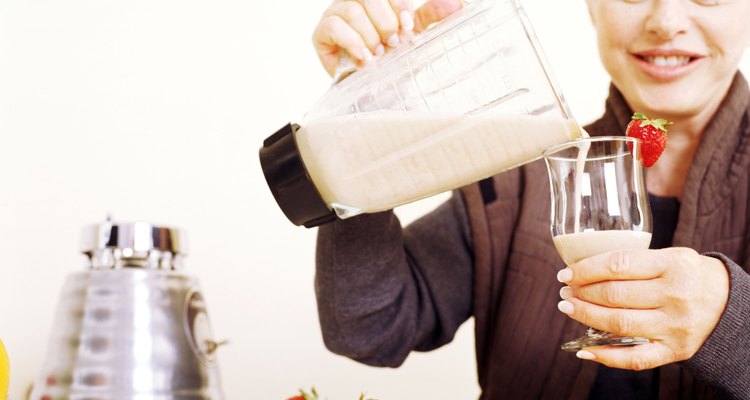
Mixing protein powder with water generally results in a not-so-palatable drink, no matter what flavor you choose. For a tastier exercise-recovery snack or meal replacement, whirl a scoop of protein powder in a blender along with a cup of frozen fruit and a cup of flavored liquid, such as soy milk, low-fat milk, almond milk or fruit juice. The benefits and drawbacks of adding a fruit juice like apple juice depend on your nutritional goals.
Calories and Carbs
Adding a cup of unsweetened apple juice to your protein shake contributes 114 calories to your drink, including 28 grams of carbs. Naturally-occuring sugars, mostly in the form of fructose, account for 23 grams of those carbohydrates. If you're looking to cut calories and carbs, unsweetened almond milk offers an attractive alternative to apple juice. With only 40 calories, a cup of unsweetened almond milk contains a mere 2 grams of carbohydrates and 0 grams of sugar.
Vitamins and Minerals
Mixing a cup of unsweetened apple juice into your protein shake gives you 250 milligrams of potassium, which is 5 percent of the recommended dietary allowance, or RDA, of this essential mineral. If you select an apple juice with ascorbic acid added, you'll also get more than 100 percent of the RDA of vitamin C. Apple juice also provides less than 5 percent of the RDA of several additional nutrients, including calcium, iron and vitamin B-6.
Fat
If you're watching your total fat intake, a cup of unsweetened apple juice makes a superb liquid choice to add to your protein shake. It contains less than a single gram of fat. By contrast, unsweetened almond milk has 3 grams of fat per cup, and unsweetened soy milk contains 4 grams of fat per cup. Other protein shake liquid options with negligible fat contents include most other fruit juices and nonfat dairy milk.
Protein
A scoop of whey protein powder usually contains 25 grams of protein, meaning you're already getting half of the RDA of protein if you add this amount to your protein shake. A cup of apple juice contributes practically no additional protein to your drink. If you want more protein, adding a cup of nonfat dairy milk contributes nearly 9 grams of protein. Unsweetened soy milk adds 7 grams of protein, while unsweetened almond milk adds only 1 gram of protein.
Related Articles
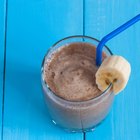
Sugar-Free Carnation Instant Breakfast ...

Low Carb Peanut Butter Snacks
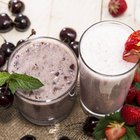
How to Make Fruit Shakes

Calories in Rum Vs. Vodka
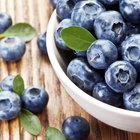
The Carbohydrates in Blueberries

Shaklee Shakes Nutrition Information

How to Make a Yogurt Smoothie
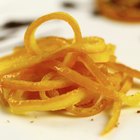
How to Substitute Orange Extract for ...
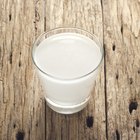
Why Is Milk So Fattening?
What Should I Be Eating to Lose Weight?
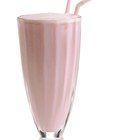
Top 10 Best Tasting Protein Shakes

Nutrition Information on Blueberries
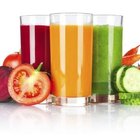
Nutrition Drinks for Diabetics

How to Thicken a Milkshake

Cappuccino Nutrition Information
Ways to Make Tomato Juice Taste Better

Make It a Manhattan: Classic Manhattan ...

How to Make a Fruit Reduction

What Drinks Can I Make With Banana Rum?

How to Make Cherry Bomb Shots
References
Resources
Writer Bio
A professional writer since 1997, Harvard graduate and pro rock climber Alli Rainey's articles have appeared in "Climbing Magazine," "Rock & Ice" and "Men's Fitness," among many others. Rainey is also an ACTION certified personal trainer (CPT) and climbing coach.
Photo Credits
Brand X Pictures/Brand X Pictures/Getty Images